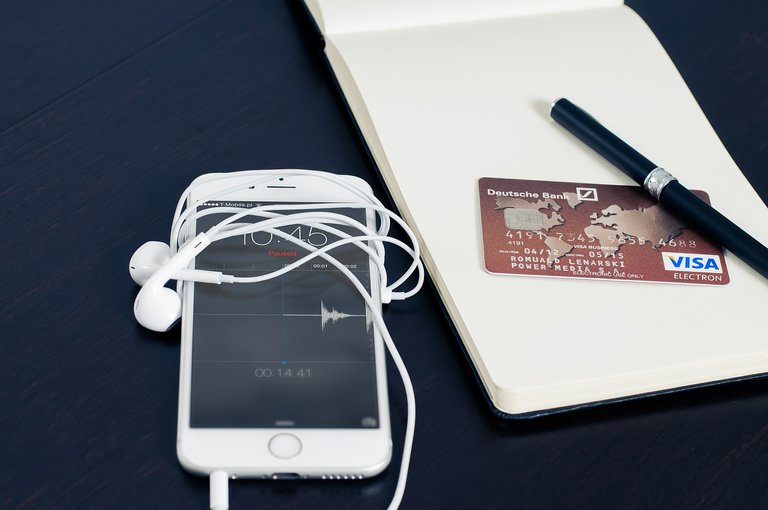
Chief technologist at BitShares Munich says ‘having to choose one coin over all others is a bad business decision’
Cash is finished.
Well, according to @kencode, chief technical officer at BitShares Munich — the company behind the BlockPay point of sale (POS) system for digital currencies — this is the future he and his colleagues, CEO and co-founder Christoph Hering and co-founder and chief marketing officer, Rodrigo Crespo, are banking on.
But, said Code, BitShares Munich recognizes, to facilitate mass adoption of any emerging technology, the path of least resistance is the best course, and end-users — consumers and merchants — benefit most.
Code said,
“Digital currencies are essentially brand new and any new technology that expects to get mass adoption will need to have as little resistance as possible in the market that it is trying to enter.”
In turn, BitShares Munich’s POS system, BlockPay, passes the network fee on to the buyer.
To ask the merchant to pay even more fees, especially for something as new as digital currencies are extremely difficult, Code explains.
In a similar vein, offering buyers — digital currency users — the option to pay in the digital currency of their choice is important.
Code suggests, an agnostic approach to the support of digital currencies in this era of the technology is not only the most suitable, but it also maximizes convenience for the user — and on some level, the merchant.
“We now see why having to choose one coin over all others has been a bad business decision,” said Code.
“Digital currency flexibility and cheap — or free in this case — options need to be available so that the merchant can at least give it a shot with zero risk.”
To deliver an agnostic payment platform, explains Code, BlockPay has “bridges” built-in that shifts one coin or asset into another. The transactions, he says, happen in three seconds or less.
“The customer [can] pay with whatever cryptocurrency they want as long as the bridge supports their coin or asset.”
With the recent release of BlockPay “S”, BitShares Munich’s free-to-download point of sale system, merchants or business owners operating existing POS systems can integrate the latest software via an application programming interface. The company states, vending machines, kiosks, Odoo, SAP, Shopkeep, NCR and other POS platforms can all integrate BlockPay.
“BlockPay has taken a couple of years to mature as it relies on multiple technologies such as the Bitshares blockchain, bridges and gateways for coin and asset conversions,” said Code.
BitShares’ blockchain, called Graphene, offers a flexible consensus protocol, the capacity to hold user-issued assets and essential financial services, like an exchange and banking, all on the blockchain.
As listed at bitshares.org, the BitShares blockchain boasts an astounding capability of 100,000 transactions-per-second (tps), an industry-leading metric.
Visa’s network VisaNet, by comparison, is capable of processing 56,000 transaction messages a second, according to last year’s figures cited by the financial services corporation. Visa’s network handles on average 2,000 tps, while Mastercard is reported to process 65,000 transactions every minute but possesses a 24,000-tps capacity.
The Bitcoin network, in its current state, “is restricted to a sustained rate of 7 tps due to the bitcoin protocol restricting block sizes to 1MB,” according to Bitcoin Wiki. This of course will change if the Segregated Witness soft-fork is enacted, which will effectively increase the limit closer to 1.6 to 2 MB.
There are three primary forms of tokens that exist on the BitShares platform, explained Code, Smartcoins, a price-stable cryptocurrency, user-issued assets and fee-backed assets.
“Any of these tokens can be used for payment at a BlockPay merchant, traded on the Bitshares decentralized exchange and used for crowdfunding,” said Code, who added, for BlockPay merchants and business owners, it can also be used as value-added Loyalty Points, a capability already built into the technology.
Offering insight into some of the early adoption data, Code remarked that developing countries seem to be taking most interest in their company’s point of sale product.
“Venezuela for example has taken a huge interest in BlockPay, as well as Argentina, China, Russia and of course Africa,” said Code.
Repost from LianaPress
For more information on BlockPay visit our website or for any inquiries send Chris or Rodrigo an e-mail at [email protected], [email protected]
Subscribe to our email list to get all of our news first!
Email Newsletter
Join us on social media!
BlockPay Facebook
BlockPay Twitter
BlockPay YouTube
 upvote and
upvote and
Hi! I am a content-detection robot. I found similar content that readers might be interested in:
http://www.networksasia.net/article/digital-currency-next-era-pos.1482370676
Great to see and here!
Shared on twitter
Disclaimer: I am just a bot trying to be helpful.
Thanks a lot!)
Cool interview with @kencode, and i agree: "having to choose one coin over all others is a bad business decision." Going agnostic for a merchant services platform makes the most sense at this stage.
Yes, @kencode did a great job and we're 100% agree with your statement!
nice updates!
Thanks!)
Stay tuned because we have a lot more to come in 2017!)